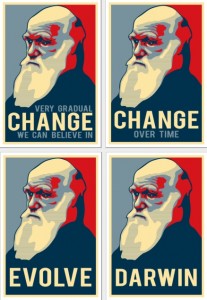 The New York Times seems to be catching up to me, first with an interview of Alvin Plantinga by Gary Cutting in The Stone on February 9th, and then with notes on Bostrom’s Simulation Hypothesis in the Sunday Times.
The New York Times seems to be catching up to me, first with an interview of Alvin Plantinga by Gary Cutting in The Stone on February 9th, and then with notes on Bostrom’s Simulation Hypothesis in the Sunday Times.
I didn’t see anything new in the Plantinga interview, but reviewed my previous argument that adaptive fidelity combined with adaptive plasticity must raise the probability of rationality at a rate that is much greater than the contributions that would be “deceptive” or even mildly cognitively or perceptually biased. Worth reading is Branden Fitelsen and Eliot Sober’s very detailed analysis of Plantinga’s Evolutionary Argument Against Naturalism (EAAN), here. Most interesting are the beginning paragraphs of Section 3, which I reproduce here because it is a critical addition that should surprise no one but often does:
Although Plantinga’s arguments don’t work, he has raised a question that needs to be answered by people who believe evolutionary theory and who also believe that this theory says that our cognitive abilities are in various ways imperfect. Evolutionary theory does say that a device that is reliable in the environment in which it evolved may be highly unreliable when used in a novel environment. It is perfectly possible that our mental machinery should work well on simple perceptual tasks, but be much less reliable when applied to theoretical matters. We hasten to add that this is possible, not inevitable. It may be that the cognitive procedures that work well in one domain also work well in another; Modus Ponens may be useful for avoiding tigers and for doing quantum physics.
Anyhow, if evolutionary theory does say that our ability to theorize about the world is apt to be rather unreliable, how are evolutionists to apply this point to their own theoretical beliefs, including their belief in evolution? One lesson that should be extracted is a certain humility—an admission of fallibility. This will not be news to evolutionists who have absorbed the fact that science in general is a fallible enterprise. Evolutionary theory just provides an important part of the explanation of why our reasoning about theoretical matters is fallible.
Far from showing that evolutionary theory is self-defeating, this consideration should lead those who believe the theory to admit that the best they can do in theorizing is to do the best they can. We are stuck with the cognitive equipment that we have. We should try to be as scrupulous and circumspect about how we use this equipment as we can. When we claim that evolutionary theory is a very well confirmed theory, we are judging this theory by using the fallible cognitive resources we have at our disposal. We can do no other.
And such humility helps to dismiss arguments about the arrogance of science and scientism.
On the topic of Bostrom’s Simulation Hypothesis, I remain skeptical that we live in a simulated universe.